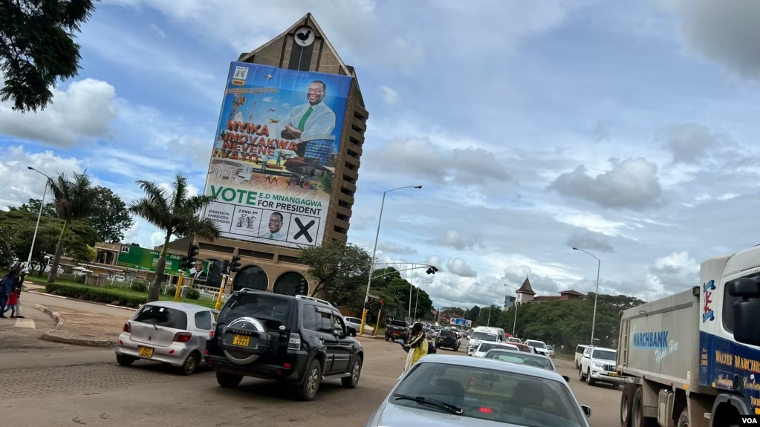The Stratfor Worldvuew Report
What to Expect From Zimbabwe’s 2023 General Election
Jan 23, 2023
Corruption, violence and election interference will likely help Zimbabwean President Emmerson Mnangagwa secure another term later this year, likely worsening the country’s economic malaise through continued financial mismanagement, corruption in the mining sector and lack of access to external credit. Mnangagwa, the leader of the ruling Zimbabwe African National Union-Patriotic Front (ZANU-PF), will run for reelection in mid-2023 against Nelson Chamisa, former parliamentary member and widely popular leader of the opposition Citizens Coalition for Change (CCC or Triple C) party. The 2023 general election will be the second Zimbabwe has held since Mnangagwa took power from former authoritarian leader Robert Mugabe in a 2017 military coup.
Zimbabwe’s electoral commission has not yet set an official date for the election, but has noted it will likely be held in July or August.
ZANU-PF has governed Zimbabwe since independence in 1980, with a brief intermission from 2009 to 2013 when Mugabe signed a power-sharing arrangement with Morgan Tsvangirai, the late leader of the Movement for Democratic Change party (the predecessor of CCC).
Chamisa ran for president in 2018 under the Movement for Democratic Change (MDC) banner. But after early results indicated Chamisa’s potential victory, Zimbabwe’s electoral commission delayed announcing the outcome and declared Mnangagwa as the winner, prompting thousands to protest in the capital of Harare. Security forces cracked down on the demonstrations with live fire and tear gas, killing at least six people and injuring many others. Chamisa disputed the election results, but the constitutional court threw out his challenge and ruled that Chamisa was not the legitimate leader of MDC lawmakers in parliament, causing him to form a new coalition under CCC.
The CCC party’s recent political gains have renewed optimism that Charisma can win the presidency, but Mnangagwa and his ruling ZANU-PF party will likely effectively suppress the opposition by using violence, intimidation, corruption and patronage networks. The CCC won 19 out of the 28 seats on the ballot in parliamentary by-elections held in February, reviving hope that Chamisa could have sufficient support to oust Mnangagwa in the coming election. Six months ahead of polling, however, ZANU-PF suppression tactics are already having some success. In early January, a video circulating on social media showed a ZANU-PF youth group beating and kicking older supporters of CCC in the township of Murehwa (which is about 100 kilometers, or about 62 miles, east of Harare). President Mnangagwa has also faced repeated accusations of deploying ”Mashurugwi” machete gangs to terrorize mining communities, with the intent of suppressing support for the opposition by intimidating and/or coercing voters. In addition, small-scale or artisanal miners have reportedly received cash, property and mining licenses from the ZANU-PF in exchange for their votes and/or attendance at political rallies for the ruling party. ZANU-PF’s influence over the Zimbabwe Electoral Commission (ZEC) — along with the ZEC’s failure to implement electoral reforms proposed by the Southern African Development Community (SADC) and the International Monetary Fund (IMF) ahead of the next ballot — further minimizes the potential of an opposition victory.
The ZEC is charged with managing fair and impartial elections. But, the commission is one of Zimbabwe’s least-trusted institutions, as it has been instrumental in certifying electoral results decried by civil society groups and opposition parties as fraudulent. This trend is set to persist, as three adult children of ZANU-PF stalwarts currently serve as election commissioners.
Continued next page
(513 VIEWS)



Pingback: Zimbabwe not likely to benefit from its vast mineral resources because of patronage politics | The Insider